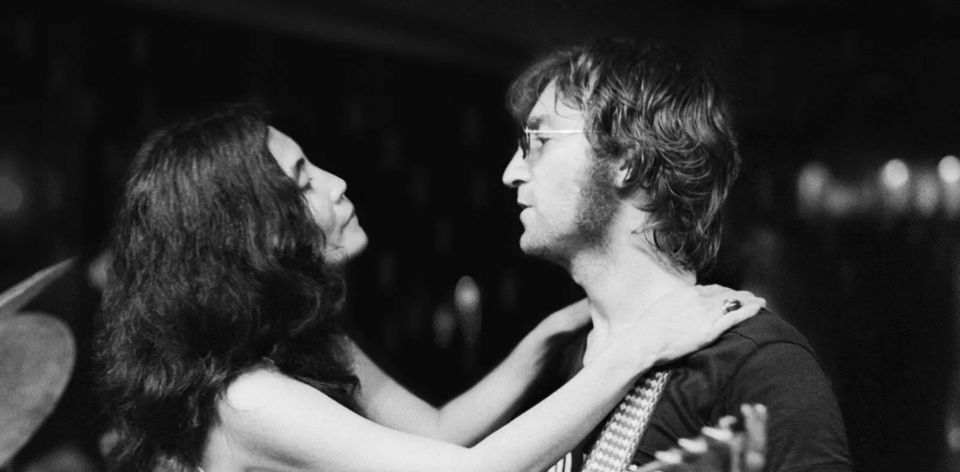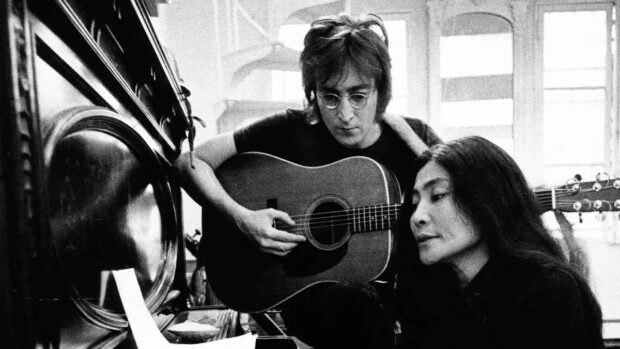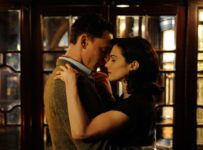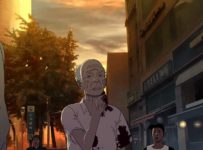Is there a millimetre of Beatles footage left that hasn’t been explored? Arguably the most documented band in history, John Lennon alone has been extensively diarised in Imagine, Gimme Some Truth, and countless others.
Yet as Peter Jackson proved with almost eight hours of The Beatles: Get Back, sometimes a shift in perspective makes all the difference. Michael Epstein’s LennoNYC already covered the icon’s time in New York with Yoko Ono, but here Kevin MacDonald and editor Sam Rice-Edwards not only unearth previously unseen (and unheard) footage from the lead-up to the 1972 One to One Madison Square Garden benefit concert, they also manage to frame Lennon and Ono as products and symbols of a divided America at a cultural crossroads.
In the early 1970s, Lennon and Ono moved into a small Greenwich Village apartment for 18 months. The way they tell it, they watched a lot of television. MacDonald and Rice-Edwards lean into this anecdote, intercutting newsreels, commercials, and pop culture ephemera with concert footage, interviews, and audio recordings. The effect is that we’re there with them, watching America flicker by on the box. In doing so, the filmmakers contextualise Lennon and Ono’s activism, arguably reframing their prolific output as reactive to this cultural saturation.
At times the quick-cut archival clips verge on the excessive, but the method feels deliberate: a kind of sensory overload that mirrors the media landscape Lennon and Ono inhabited. One especially affecting sequence features footage from Willowbrook State School, where an impossibly young Geraldo Rivera exposed the horrific treatment of children with intellectual disabilities. It’s this segment that led directly to the One to One concert.
Like Johan Grimonprez’s The Soundtrack to a Coup d’État (2024), ONE TO ONE makes use of on-screen text for phone conversations, offering Lennon obsessives a treasure trove of transcripts. Conversations with David Peel and fellow activists are among the highlights, though one surreal aside involves Ono’s efforts to acquire live flies for an installation piece.
Did the world need another Lennon documentary? Probably not. Will fans discover brand-new revelations? Unlikely. And yet, MacDonald and Rice-Edwards carve out new emotional ground, particularly in rebalancing the Lennon/Ono narrative. Ono is finally given a voice equal to Lennon’s, portrayed not as a disruptive force, but as a fierce, feminist, proto-punk artist whose own griefs, especially the search for her estranged daughter, are present throughout.
By the same token, the filmmakers make some very conscious choices about what not to include, sometimes leaping between years without narration and very deliberately curating songs from the concert that fit the story. In these moments, the burden shifts to the viewer, our cultural knowledge is expected to fill the gaps.
At times, the squabbles between musicians and activists border on the absurd, like Bob Dylan refusing to tour until A.J. Weberman apologised for, among other things, rummaging through his garbage on camera. But these scenes ground its icons in human moments. And maybe that’s the point: this was just a couple living through a moment in time.
2024 | UK | DIRECTOR: Kevin Macdonald | EDITOR: Sam Rice-Edwards | CAST: John Lennon, Yoko Ono, David Peel, Allen Ginsberg | DISTRIBUTOR: Sydney Film Festival 2025, Madman Entertainment | RUNNING TIME: 100 minutes | RELEASE DATE: 4-15 June 2025 (SFF 2025)







